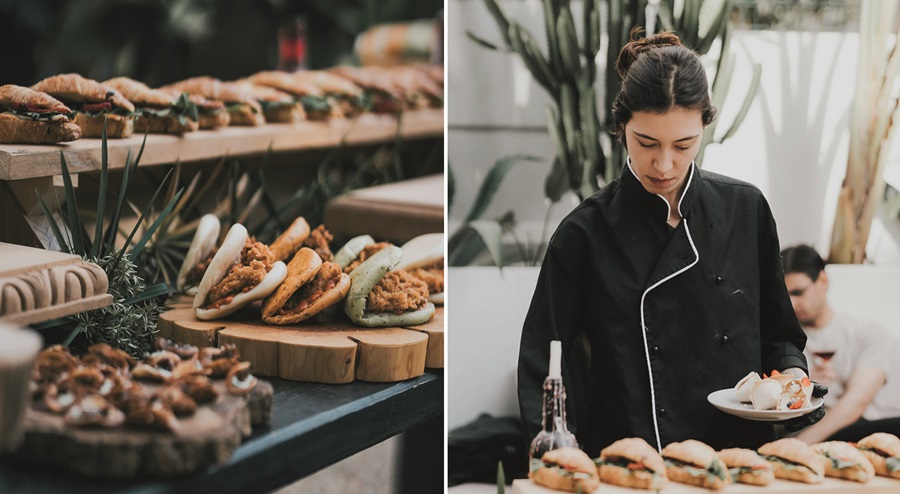-
Locations
Campuses in Europe & Middle EastCampuses in The AmericasCampuses in AsiaLe Cordon Bleu International
- Online Learning
Contact your local representative - Our Story
- Programmes
- Brochures
- News & Events
- Contact
- Find Course

Caterers prepare and serve meals for a variety of events: Weddings, birthdays, seminars, cocktail parties, etc. They design made-to-measure menus, having selected the products in advance. They supervise the cooking of dishes and their presentation. Their role is not limited to cooking: They also manage service, logistics and sometimes even decoration.
The kitchen is a caterer's first tool and needs to be equipped with the basics: Work surfaces, sinks, waste bins, knives of various sizes, chopping boards, saucepans, frying pans etc. In other words, the basic tools needed for cooking that can be found in any household. What sets a caterer apart from a simple cooking enthusiast is specialised equipment.
A caterer specialising in cold buffets will need a refrigerated display case, gastronome trays, etc. An event caterer, on the other hand, will need more extensive cooking equipment (professional oven, deep-fat fryer, grill, etc.).
Lastly, you need a suitable vehicle for transporting your products. These include refrigerated vans, which maintain the cold chain.Firstly, you need to choose the right legal status for your project. Artisan, self-employed or a company, each status has its advantages and disadvantages in terms of taxation, social security contributions and responsibilities. If you don't know anything about accountancy, you should call in a professional to help you make the best choice.
To operate as a caterer, you will need several administrative authorisations. The first is registration with the Trade and Companies Register (RCS). You will also need to obtain a declaration of activity from your local council. If you handle food products, HACCP training is compulsory. Regular checks may be carried out by government departments, so it's best to stay within the law.The catering profession requires solid culinary expertise, as well as management and organisational skills. The training programmes available at Le Cordon Bleu Paris are therefore a major advantage when starting out in this profession.
The Le Cordon Bleu Diplôme de Cuisine will give you the solid grounding you need to excel as a caterer. This programme will introduce you to traditional and contemporary culinary techniques that you will master in conjunction with cooking, seasoning and presentation. Practical classes will enable you to apply your knowledge and develop your creativity according to your level (basic, intermediate, superior).
A chef is also an entrepreneur. Your passion for cooking may be your driving force, but culinary management will give you the keys with which to transform this passion into a business. Le Cordon Bleu Diplôme de Cuisine with Internship Pathway and Culinary Management is a comprehensive training programme that will give you the skills you need to manage a brigade, an establishment or create your own catering business.
This pathway will train you in human resources management, financial management, culinary marketing and much more. You will learn how to draw up business plans, negotiate with suppliers, manage stocks and optimise costs.
By following this programme, you will benefit from high level culinary expertise and the management skills essential to the success of your project. Classes are taught by experienced professionals who will share their passion and their network with you.Copyright © 2025 Le Cordon Bleu International B.V. All Rights Reserved.